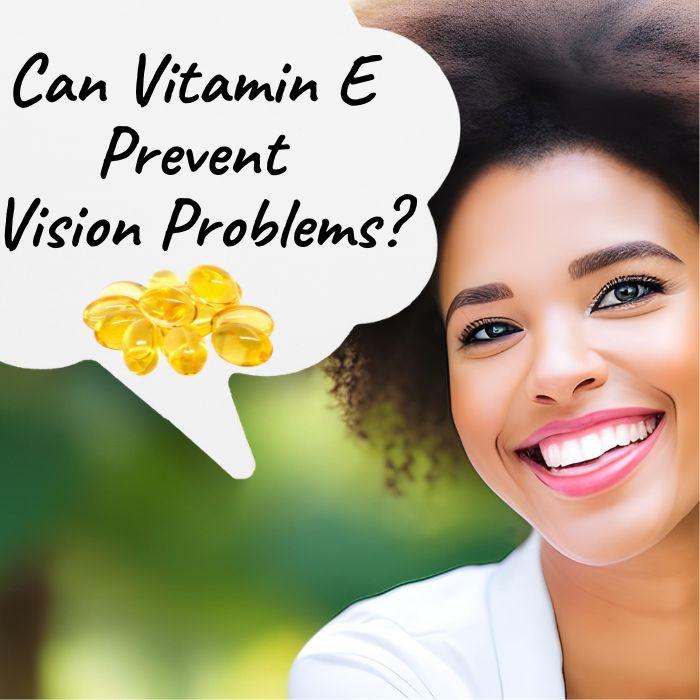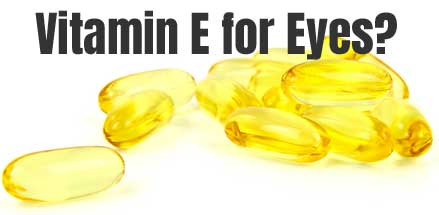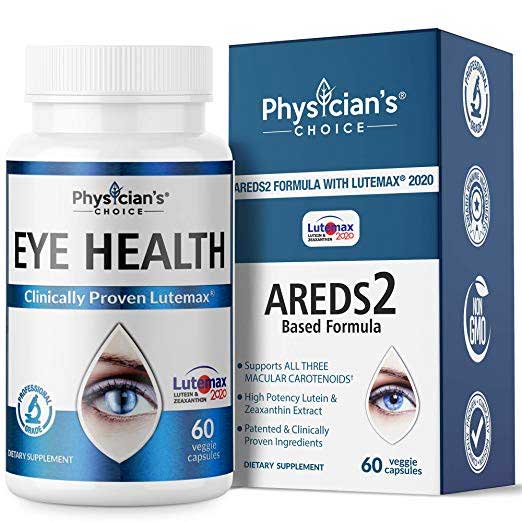
According to the American Optometric Association, studies show that Vitamin E can protect eye cells from free radical damage. Over time, free radicals can break down tissue in the eye, thus increasing the risk for macular degeneration and cataracts.
We can get Vitamin E from foods like sweet potatoes, nuts and seeds plus we can get it through supplementation. However, our bodies cannot produce it, so we must consume it from outside sources.
In addition to enhancing eye health, Vitamin E helps boost the immune system, assists in DNA repair and helps maintain healthy membranes throughout the body.
How Vitamin E May Prevent Vision Problems:
Vitamin E works as an antioxidant by reducing free radical damage and lipid oxidation. Fats are susceptible to oxidation, and since the retina in the eye contains a high concentration of fatty acids, Vitamin E is important for eye health. (Source)

For instance, scientists believe that cataracts are formed by oxidation in the lens of the eye due to UV rays. WebMD explains that Vitamin E actually comes in different forms, and you want to get “Alpha-Tocopherol” when purchasing a supplement.
In addition, Dr Axe says that taking Vitamin E along with Vitamin A has shown to speed up healing for those undergoing laser eye surgery.
Note: The recommended daily allowance of Vitamin E for adults is 22 IU in its natural form, which you can get from about 80 grams of sunflower seeds. With a synthetic alpha tocopherol, however, you would need a higher dose of 33 IU.
Keep in mind that many E supplements provide 400 IU, which gives you significantly more than the RDA.
The AREDS 2 Study: Which Vitamins Might Improve Eyesight?
The AREDS 2 study (Age-Related Eye Disease Study) showed that participants who took high concentrations of certain vitamins slowed the progression of AMD (Age-Related Macular Degeneration). According to the NIH, these vitamins include:
- 500 milligrams (mg) of vitamin C
- 400 international units of vitamin E
- 15 mg beta-carotene
- 80 mg zinc as zinc oxide
- 2 mg copper as cupric oxide
That said, the results concluded that the vitamin consumption only slowed disease progression, but could not prevent it. (Source)
Vitamin E Capsules for Eyesight – How Much Should You Take?
According to the National Institutes of Health, the safe upper limit of Vitamin E is 1,500 IU.
However, this vitamin does come with potential risks. For example, Vitamin E can thin the blood and may increase the risk of a stroke. Therefore, check with your doctor before supplementing with Vitamin E. In addition, some people experience fatigue, muscle weakness and decreased thyroid function.


